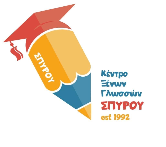For language teachers and educators.
As the exam period is looming on the horizon, the pace of exam preparation is intensifying. You are flirting with the idea of incorporating some extra slots of “teaching” the test while assigning some extra homework sounds like a good prescription for bridging those “last learning gaps”. “Now, it’s time to push”.
Still, little progress is made. You see your students’ motivation, productivity, and psychology being sabotaged. “It’s just a few weeks”.
No, it’s not supposed to be easy.
But neither is learning in general. When it comes to language learning, exam performance is one thing, communicating in real life is another. If educating our learners is included in the equation as well, then one should not forget that building life skills, discovering the world in the foreign language, and learning how to learn is what really matters. The exam period should not make us forget that there is no fixed timeline for (language) education.
Of course, students should familiarize themselves with the test format, do some practice, work on some exam-related strategies, and learn to control their anxiety. But exam anxiety is already difficult to cope with. Why add to that an extra dose of negativity and the unnecessary burden of cramming things into your students’ heads?
Well-being and progress go hand in hand, so here are some things to keep in mind if you are teaching an exam class this year:
1) Plan ahead and allocate wisely:
The fact that your students are sitting for language exams does not mean you should spend the whole year “training” them for the test per se. There is no point wasting your and your students’ time and energy on something that is fixed and does not necessarily help retain information. Besides, it’s quality over quantity! Having said that, a couple of months before the exams, you can spend 1/3 for exam prep, 1/3 for feedback and reflection, and 1/3 for some fun, educational activities that will help both teachers and learners to wind down.

2) Resist the temptation of reviewing in a ‘meta’ way:
Metalanguage is for linguists. Our students are language learners. As language teachers and most importantly EDUCATORS, our role is to provide meaningful interaction in the foreign language and create the right conditions for new, educational and fun learning experiences. Giving in the temptation of talking ABOUT the language not only is unnecessary but it will minimize the opportunities for your learners to actually USE the language in a communicative and meaningful way.
3) Show you care:
Doing daily check-ins with your students to find out how they feel and why must be your go-to opening routine. Feeling heard is fundamental. Very often your students will confess to you that they hadn’t done that exercise you had assigned the other day, because they were overwhelmed with something else. That’s perfectly ok. Student-teacher relationships, like all relationships, must be based on some core values, such as honesty and mutual understanding. Consider this confession as a sign that your relationship is actually working.
4) Give them space:
Assign a minimum amount of homework, (if not at all) as everyone feels more motivated and productive when well-rested. When students’ motivation is at risk, invest more in communicative lessons, give them more choice, and sometimes, compromise. After all, a successful lesson is an engaging one, where everyone is actively involved. Find what FEELS right for this last week before the exams; it may be a speaking lesson, a roleplay lesson, a video-based lesson, a project-based lesson etc.
5) Be there:
Building rapport from day one is key. Your students need you to keep being patient, caring, and supportive. It’s a tough time for everyone, but building resiliency is not something we should expect only from others, but from ourselves as well.
Finally…
6) Be consistent:
Do not let yourself be carried away by that colleague or parent who sees last-minute exam prep as a panacea. Trust your guts, stick to the true essence of education and listen to your students’ needs.
DISCLAIMER! The views presented are my own and do not represent the opinions of any entity with which I have been, will be or am currently affiliated.


